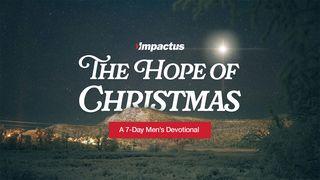Christian Foundations 9 - Beliefs Part 1નમૂનો

When Beliefs Differ
I guess you have already found that some Christians have different beliefs from you on some issues. Is this okay? It’s helpful here to differentiate between primary and secondary beliefs. Primary beliefs are the few beliefs that lie at the heart of the gospel. We’ve looked at two of these primary beliefs already in this Plan – God as Trinity and Jesus being fully God and fully human. These beliefs are foundational. If you disagree with primary Christian beliefs, you will end up moving away from Christian faith. Christian sects usually base their theology on some disregard for primary beliefs.
Then there are secondary beliefs, like what happens to the bread and cup when we celebrate the Lord’s Supper. These are important beliefs, but they don’t impact a person’s standing with God or inclusion in His church. Paul deals with one of these secondary issues in the Scripture today: “Should you eat food that has been sacrificed to idols?” I’m sure that many early Christians had strong beliefs on this issue, but as a secondary issue, their beliefs did not include or exclude them from salvation. In this Scripture, Paul guides us on how to personally work through these secondary issues.
Explore: 1 Corinthians 8:1-13 (NIV)
1 Now about food sacrificed to idols: We know that “We all possess knowledge.” But knowledge puffs up while love builds up. 2 Those who think they know something do not yet know as they ought to know. 3 But whoever loves God is known by God.
4 So then, about eating food sacrificed to idols: We know that “An idol is nothing at all in the world” and that “There is no God but one.” 5 For even if there are so-called gods, whether in heaven or on earth (as indeed there are many “gods” and many “lords”), 6 yet for us there is but one God, the Father, from whom all things came and for whom we live; and there is but one Lord, Jesus Christ, through whom all things came and through whom we live.
7 But not everyone possesses this knowledge. Some people are still so accustomed to idols that when they eat sacrificial food, they think of it as having been sacrificed to a god, and since their conscience is weak, it is defiled. 8 But food does not bring us near to God; we are no worse if we do not eat, and no better if we do.
9 Be careful, however, that the exercise of your rights does not become a stumbling block to the weak. 10 For if someone with a weak conscience sees you, with all your knowledge, eating in an idol’s temple, won’t that person be emboldened to eat what is sacrificed to idols? 11 So this weak brother or sister, for whom Christ died, is destroyed by your knowledge. 12 When you sin against them in this way and wound their weak conscience, you sin against Christ. 13 Therefore, if what I eat causes my brother or sister to fall into sin, I will never eat meat again, so that I will not cause them to fall.
Journal
1. What is God saying to me? Which verse is most significant?
2. What would I like to discuss/explore further?
3. What do I need to do?
4. What can you learn from Paul’s way of dealing with the issue of different beliefs?
Reflect
Let me draw a few guidelines from Paul on dealing with differing secondary beliefs.
1. Name secondary beliefs as secondary, no matter how strongly you feel about them. In this case, Paul says that “food does not bring us near to God” (8:8). He has strong opinions on the issue, but knows that his beliefs on eating food that has been offered to idols are not foundational to faith.
2. Don’t think that you have all the answers, no matter how knowledgeable you are about a belief. As Paul says, “Knowledge puffs up” (8:1). Be humble. Listen to and learn from other Christians, even if you think that you know more than them.
3. Work out why you believe what you do. Paul goes into detail about why he believes that eating food offered to idols is okay (8:4-8). He has a strong theological argument for his position. Sometimes our beliefs are forged by our background, our experiences, the people around us, or influencers on the internet, and not by the Bible. Carefully, work through your belief and check that it has a solid biblical foundation. Check with other Christians that you respect and trust (not those with the loudest voices).
4. Accept that Christians will come to different perspectives on secondary beliefs. That’s okay. Paul is very aware that not everyone possesses his knowledge and beliefs (8:7). He doesn’t agree with them, but accepts it as okay, even expected.
5. Be loving to those who disagree with you. They may be weaker, and a harsh approach (even if you are right) might cause them to stumble (8:9). This doesn’t mean that we give in to doctrinal bullies, but we are gentle as we disagree on secondary beliefs, and sometimes we say nothing.
Don’t be discouraged when you find that other Christians disagree with you about beliefs you hold strongly. Our differences can make us stronger as we live lovingly in community together and learn from each other.
Pray
Lord, help me to love and relate gently to those who disagree with me on secondary beliefs. I really do want to know what You say, but please keep me from being arrogant about my own beliefs or threatened by the different beliefs of others. Teach me how to live humbly in the Christian community that You have placed me in.
Respond
Write down any beliefs you have that you would like to talk over with your mentor.
Written by John Sweetman
શાસ્ત્ર
About this Plan

Beliefs Part 1 is the ninth in a series of Plans that helps you establish a strong biblical foundation as a follower of Jesus. Most new Christians are not looking for a sugar-coated version of the Bible. They’re looking for truth. In this Plan, we consider some foundational Christian beliefs and explore how to respond when you find your beliefs differ from the beliefs of other Christians.
More
સંબંધિત યોજનાઓ

The Way of the Wildflower: Gospel Meditations to Unburden Your Anxious Soul

Redeemed in the Aftermath

Song of Songs and Ecclesiastes Through Song in 7 Days

The Hope of Christmas: A Men's Devotional

Starting Strong, Finishing Stronger! Lessons From Gideon’s Life

Proverbs Through Song in 31 Days

Identity

Now That You Are Born Again

BUT GOD: Two Words That Change Everything
